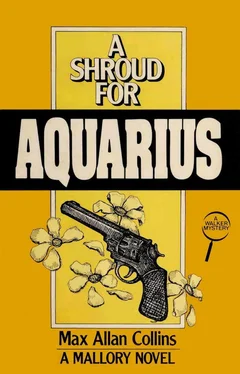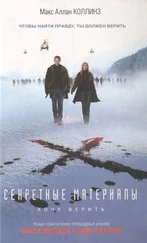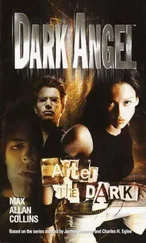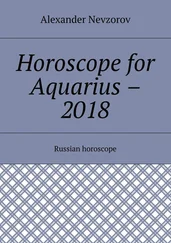Max Allan Collins
A Shroud for Aquarius
In memory of my good friend
Terry Beckey
who shared his music and laughter
The portions of this novel pertaining to gaming and Las Vegas could not have been written without the advice and help of Charlie Stump, formerly of the Four Queens; the author’s friend Chuck Mosser; and the author’s father, Max A. Collins, Sr. Thank you, gentlemen.
M.A.C.
I don’t remember where I was when I heard President Kennedy was shot. It’s a bench mark of my (and several) generations, I know; but I just don’t remember, exactly. I know I was in junior high at the time, in one of my classes, and it came over the intercom; but which class, and what time of day, and who was sitting next to me, and other such specifics have faded from memory. Sorry.
On the other hand, I doubt I’ll ever forget the moment when I heard Ginnie Mullens was shot. No one in my (or any) generation, other than the few of us who knew her, would ever consider that a bench mark of any kind. But I can tell you this: till senility or sudden death takes me, I’ll remember that moment — frozen in my memory, like the proverbial fly in amber — when I heard about Ginnie dying.
I met Ginnie when we were both in diapers; the exact circumstances of that meeting are not frozen in my memory. I just know that our mothers were the best of friends, and Ginnie and I were inflicted upon each other at an early age. Neither of us could remember earlier than knowing each other.
For a long time — perhaps till age ten or eleven — we cheerfully hated each other. Ginnie was a tomboy of sorts, and considered me a sissy — I didn’t like climbing trees with her, or shooting her B-B gun, either. She liked to play with a train set bequeathed to her by her older brother, and I was bored to tears with it.
“What’s the point?” I asked her, both of us nine. “It just goes round and round.”
“Does it have to have a point?” she asked me.
I thought about it.
“Yeah,” I said. “I sort of think it does.”
She gave me a Bronx cheer, despite the fact that we were in Port City, Iowa, and pushed the control and made the train go faster.
But we didn’t play trains much after that, and a few years later, when we were a worldly thirteen, she copped to the fact that I’d made her think. I’d forgotten the incident, and wouldn’t be able to report it now if she hadn’t reminded me of it then.
“You got me to thinking,” she said. “That things should have a point.”
I shrugged. At thirteen I was well aware that life had a point: girls. (Ginnie, however, wasn’t one of them: although an oddly “cute” girl with red hair and freckles and a nice little shape, I never considered her for romance. And she likewise never considered me in that fashion. We were more like brother and sister. Friends. We’d played doctor at age eight and that had been the extent of it. Once in a great while, when adolescent insomnia struck, I’d realize that seeing Ginnie without her britches at age thirteen just might be a different experience than at age eight. But then I’d feel guilty, somehow, and let it go.)
“And I don’t mean girls,” she said.
We were outside, sitting under a black sky full of silver stars. It was ten o’clock, but on a Friday night we could get away with it. Ginnie and her mom sometimes stayed over on the weekends. Years later I found out the reason.
“What do you mean?”
“Life. What’s the point of it all? And is there a God? We go to Sunday school, but I think that’s just social, don’t you?”
I hadn’t really thought about it. And that launched the first of many a soul-searching, existential discussion between Ginnie and me over the years. She had caught a fever I’d contracted a lot earlier on: reading. I was just graduating from the Hardy Boys into Ellery Queen. But Ginnie had discovered Ayn Rand, and pretty soon we both decided we were objectivists. And deists. Both conditions, like our complexions, cleared up.
Then in junior high I decided I didn’t just want to read books, I wanted to write them; and for a long time Ginnie was the only person I’d ever show my stories to, and after I went public in the ninth grade she remained my self-professed “biggest fan.” She even typed the manuscripts I sent out in the mail (until I made it through a high school typing class myself) and provided me with inevitable moral support upon their inevitable rejection.
She had her own cockeyed goals, or at least so they seemed then. Women’s lib was barely a rumor around these parts at the time; but Ginnie took such rumors seriously. She knew she would be a career woman — if not a professional, like a doctor or lawyer, then a business woman; not an employee, but an employer — she wanted to be a millionaire by her thirtieth birthday. I didn’t see why she couldn’t — she was a brilliant student and a shrewd manipulator of those about her, with a wheeler-dealer’s knack for getting her own way — and, anyway, it seemed like she was allowing herself plenty of time...
We were good, good friends, as only a boy and a girl who are not romantically inclined toward each other can be. We shared books (in high school I turned her on to James M. Cain, and she showed me Albert Camus, and we both figured out the connection) and problems (though a conflict of interests arose when she was going with my best friend John in high school) and at church camp we gave Holy Hell to the poor ministers who were serving as counselors (still in our deist period).
At church camp one year we ran into a Born Again-style minister who called the kids down from the pews to the front of the church to be saved. Neither Ginnie nor I went down there, and afterward one of our counselors questioned why — did the spirit not move us? Like any good fourteen-year-old male, I said, “I dunno.” Ginnie said, “Just because I live in Iowa doesn’t mean I have to moo my way to the cattle trough of faith.” I still remember the pale look on the poor startled minister’s face. He was just a kid, probably twenty-two; at the time I figured him to be ancient. Ginnie tested his faith, all right.
But she had more in mind that summer than just setting ministers straight about religion. She had met some dark-haired, dark-eyed kid from Lone Tree, a fifteen-year-old, and they went down to the lake and necked at night. Caused quite a sensation. I kissed a girl myself that year. Full-scale necking was out of my league, though: we were caught up in the last innocent throes of the American Graffiti years — the sexual revolution, where teenagers were concerned, was just a skirmish at this point. Ginnie, however, was there when they fired the first shot.
I may be the only person, outside of her parents, who knew about the abortion her junior year — at that time, that is. Later on she’d mention it rather freely, ostensibly as an example of the need for sex education in the schools, but in reality just to be shocking. She liked to shock. She’d liked to goose you with words, ideas, fancies.
We sat in the dark that night, and I held her. It was the first time since early adolescence that I’d felt anything like a romantic or remotely sexual stirring toward her. She told me she wanted to have the baby, but her parents talked her out of it.
“Is it murder?” she asked.
“I don’t think so,” I said, not sure.
“It isn’t a person. Not yet. It’s just a fetus.”
“You’re right.”
“I don’t think abortion’s wrong, Mal. Or evil. Do you?”
“No.”
“I wish you’d say ‘no’ like you meant it.”
Читать дальше












